How To Raise Testosterone In Females
How To Raise Testosterone In Females
Wrestling with a receding hairline, gained a spare tyre and can't seem to maintain an erection? Dwindling testosterone levels could be to blame. A solid supply of testosterone is integral to practically every physical aspect of your body – muscle, sex drive, bone strength, heart health, memory and even penis size – so when your levels plummet, it has some pretty undesirable effects on your health.
There are ways to redress the balance without buying supps from that shady guy at the gym. Testosterone boosters can be found in safe, legal places, like your local chemist or hormone therapy clinics. They won't ward off Father Time forever – unfortunately, sapping T with every turn around the sun is par for the course – but they can help to keep your levels buoyant (and, hopefully, your hairline intact) for years to come.
Along with testosterone boosters, there are plenty of natural ways to pep up your T-levels with diet, exercise and other lifestyle changes. So, if you're the wrong side of 30 and losing strength in the gym, struggling to focus at work, and can't find the energy to finish the day – let alone pleasure your partner – keep reading. Our expert advice will see you right.
What Causes Men's Testosterone to Fall?
Although testosterone is vital, falling testosterone levels aren't necessarily something to worry about – they're as natural as finding a grey hair or two. Men in their thirties can expect to experience a two per cent drop in their T-levels each a year, according to the NHS, and these kinds of numbers are unlikely to cause any problems by themselves.
Falling T-levels that can't be put down to biology? Often, they can be traced back to lifestyle or mental health issues. If you're experiencing symptoms of low testosterone, such as erectile dysfunction or a loss of libido, it may be worth speaking to your doctor about other causes, such as stress, depression and anxiety.
If lifestyle or psychological problems aren't responsible for your falling T, another possible cause is hypogonadism, which describes when the testes produce few or no hormones. Men can be born with hypogonadism, or it can develop later in life due to injury or infection.
Left unchecked, low T-levels can weaken your bones, potentially causing osteoporosis. Worryingly, a study published in the Journal of Clinical Endocrinology and Metabolism has linked low testosterone to an increased risk of death. So if you're experiencing symptoms, don't suffer in silence – get checked out.
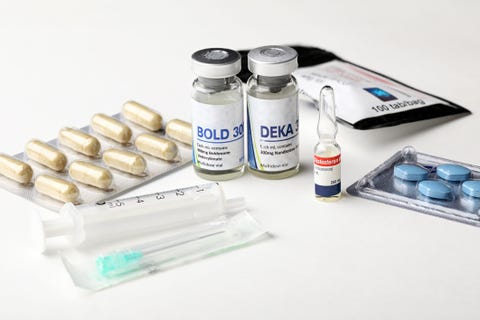
vuk8691 Getty Images
What Is Normal Testosterone by Age?
Testosterone levels are measured through blood tests, and in the UK, measured in nanomoles per litre (nmol/l). For men, a "normal" adult reading falls anywhere upwards of 0.30 nmol/l, with the optimal range above 0.45 nmol/l.
From the age of 30 onwards, your T-levels start to decline at a rate of one per cent each year. "Most men still maintain a normal level of testosterone throughout their lives, experience no symptoms, and this is why you see men who can father children well into their eighties," says Dr Luke Pratsides, lead GP at Numan.
"However, for some men, their testosterone may drop below the lower limit or around the lower limit of the range," he continues. "This is when they can start experiencing symptoms like diminished sex drive, erectile dysfunction, subfertility, low stamina, muscle atrophy, decreased energy and lower mood."
What Are Testosterone Boosters?
Testosterone boosters is a catch-all term given to a range of supplements that increase levels of testosterone. There are a number of options, depending on how severe the drop. If your testosterone levels need a gentle lift, herbal blends and products like Tribulus Terrestris (TT) can be bought in places like Holland & Barrett or Amazon.

Holland & Barrett Tribulus Terrestris Extract with Zinc 250mg 90 Capsules
hollandandbarrett.com
£24.99
If your symptoms are severe, there are other legal options to consider – like DHEA, a precursor steroid hormone available on prescription in the UK. It must be taken under supervision, though, because high doses can cause mood changes and aggression – roid rage, in other words – along with other unwanted symptoms of excessive testosterone. Other medications available from a specialist include Clomifene and HCG.
Do Any Testosterone Boosters Really Work?
If they're legit, and your T-levels are genuinely low, then yes. "I have seen them work for people," says GP and hormonal therapy expert at Omniya London, Dr Sohere Roked. "I think sometimes people feel that it's not a good thing to do or they're just wasting their time taking them, but I have seen people who combine that with a good diet and exercise and have noticed a change in their physique, their energy, their mood, and the sort of things that testosterone would naturally help."
There's science behind testosterone boosters, too. Researchers from the Shanghai University of Sport monitored 15 male boxers during three weeks of high-intensity training and three weeks of high-volume training sessions, separated by four weeks of rest. Half the group were given 1250mg TT. Those taking the extracts significantly alleviated muscle damage and boosted their anaerobic performance.
This content is imported from {embed-name}. You may be able to find the same content in another format, or you may be able to find more information, at their web site.
What Does Testosterone Booster Do Sexually?
Testosterone boosters can improve your between-the-sheets action – cranking up your sex drive, energy levels, and making it easier to maintain an erection – but only if your T-levels are low. Boosting your testosterone levels excessively can cause unwanted (and even harmful) side effects – think: shrinking testicles, breast development, and a drop in sperm count (so, potentially infertility). It can even lead to erectile dysfunction.
"If you are struggling to get aroused or gain or maintain an erection, don't just assume that it's due to low testosterone levels," Sonia Khan, lead pharmacist at Medicine Direct. "Everyday factors can also play a part in a low libido, such as alcohol, stress, depression, exhaustion and illness. It's important to speak to an impartial medical professional about why you may have a low sex drive."
What Are the Side Effects of Taking Testosterone Boosters?
Before taking any supplements, you need to determine whether low testosterone is actually the root cause of your symptoms. Taking something that you don't need could potentially cause irreversible issues – so for that reason, steroid hormones like DHEA should never be prescribed without blood tests. Roked also recommends regular blood monitoring to make sure you're taking the correct dosage.
The biggest problem with artificially hiking up your T-levels? Testosterone boosters can shut off your natural production and permanently lower your sperm count. They may also leave you open to unwanted side effects like acne, male pattern baldness, mood swings and aggressive behaviour. To give yourself the best possible chance of avoiding these side effects, always see an expert before buying testosterone boosters.
"I see people who've been doing things in the gym and they've never been told that it can shut off your own production and it can also irreversibly lower your sperm count," says Roked. "These are all quite serious issues that – even though they may be rare – if it happened to you it would cause a big impact on your life, so it's always best to do things with a specialist, but also for anyone it's not a great idea to take things that aren't needed."
While steroids like DHEA can boost testosterone, if they're used in the wrong dosages or by people who don't need them, they can raise T-levels far beyond the normal (and safe) range. According to Dr. Emil Hodzovic, a competitive bodybuilder and doctor with Medichecks, steroids come with "a set of risks, including liver damage, hormone imbalance, high blood pressure, and a higher risk of a stroke or heart attack".
Should Men Take Testosterone?
Cranking up your T-levels with testosterone boosters without taking care of your basic health and well-being is running before you can walk. In other words, if you haven't put the foundations in place, it's utterly pointless – and potentially harmful to your health.
"Poor lifestyle can mimic the symptoms of low testosterone and can actually cause low testosterone as well," says Hodzovic. "The main culprits include lack of sleep, excessive stress, too little or too much exercise and too little or too much body fat.
"Getting healthy and active and eating a balanced nutritious diet along with enough sleep are the most important things to do. Taking testosterone boosters without addressing these basics is likely going to have minimal effect even if testosterone levels are low."
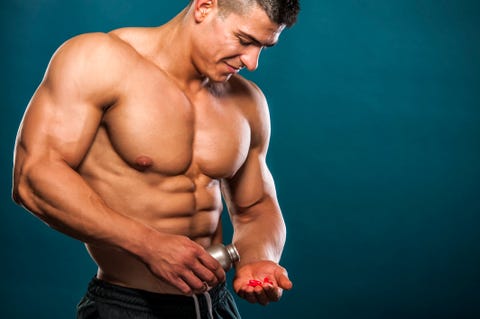
MRBIG_PHOTOGRAPHY Getty Images
How Can a Man Increase Testosterone?
Filling up on zinc and omega-3 fatty acids will naturally help to boost your T-levels, says Roked. If you're looking to boost your testosterone through your diet, try adding these 10 testosterone-boosting foods to your shopping list – or if you're deficient, pop a supp.
Switched up your diet and lifestyle and still haven't seen any improvements? It's time to consult an expert. Remember, "it's not really going to work if you're taking loads of stuff, but not looking after the basics," says Roked. So, be honest with yourself.
What Food Kills Testosterone?
Before you invest in testosterone boosters, clear out your fridge. "Some foods promote oestrogen type hormones – the predominate sex hormone in females – in the body either directly or by converting testosterone to oestrogens," says Dr Pratsides. "The more circulating oestrogen, the lower the testosterone production."
The most prominent culprit? Refined carbohydrates and sugars, so go easy on the junk food to protect your T-levels. "Overconsumption of high fat, processed and high sugar food can lead to increased deposition of fat in the abdominal region," says Dr Pratsides. "This belly fat secretes an enzyme called aromatase that converts testosterone into oestrogen."
Overconsumption of high fat, processed and high sugar food can lead to increased deposition of fat in the abdominal region. This belly fat secretes an enzyme called aromatase that converts testosterone into oestrogen.
Some – admittedly weak – evidence suggests that soy-based products lower testosterone, he adds, since they contain chemicals called phytoestrogens. These plant substances mimic the effects of oestrogen, so if you're following a plant-based diet, it could be worth limiting your intake of tofu, tempeh, and soya milk to see whether symptoms improve.
It's worth mentioning that alcohol tanks your T-levels, too. "Ethanol lowers the amount of NAD+, a coenzyme responsible for testosterone production in the liver and testes," says Dr Pratsides. "Chronic heavy alcohol consumption promotes the production of oestrogen and cortisol hormones – both can lower testosterone."
Don't sweat the occasional beer, just watch your long-term intake. "Men who drink large quantities of alcohol over prolonged periods of time may find that their testosterone levels decrease," says Khan, adding that – along with desserts and pastries – "consuming lots of dairy and an insufficient amount of dark green vegetables can also exacerbate the issue."
Best Testosterone Supplements
Not sure where to begin with T-boosting supps? We've scoured the most prominent scientific journals to find out which testosterone boosters you can trust.
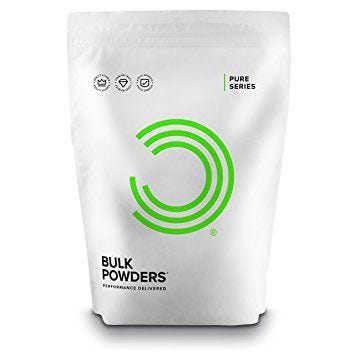
BULK POWDERS 750 mg D Aspartic Acid Capsules - Pack of 120
BULK POWDERS amazon.co.uk
£16.99
D-Aspartic Acid
D-Aspartic acid is a natural amino acid involved in the synthesis and release of testosterone. In one study, men with impaired sperm production took D-Aspartic acid for 90 days. At the end of the trial, their sperm count had more than doubled from 8.2 million sperm per ml to 16.5 million sperm per ml.
If you have normal testosterone levels and are looking for strength-gaining boost, D-Aspartic acid use may be less fruitful. In a study published in Nutrition Research, men who resistance trained four times a week saw no difference in their body composition and muscle strength compared to the control group.
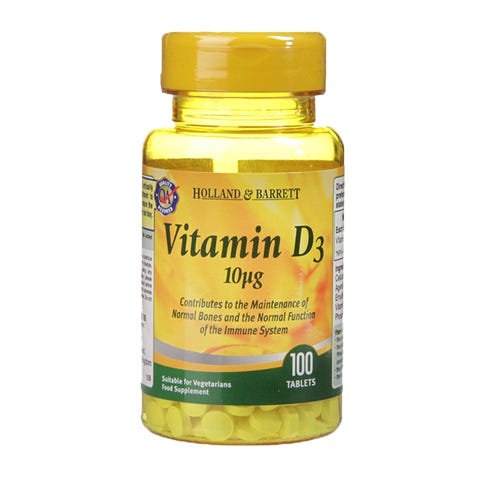
Holland & Barrett Vitamin D3 100 Tablets 10ug
hollandandbarrett.com
£3.59
Vitamin D
Most people are aware that a lack of vitamin D can cause bones to become soft and weak, but the sunshine vitamin has also been linked to low levels of testosterone. In a University of Graz study, when healthy overweight men were given vitamin D supplements daily for one year, their testosterone levels increased. So if you can't get your vit D from exposure to the sun, consider the benefits of supplements.
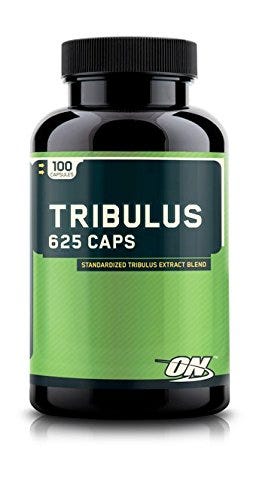
Optimum Nutrition Tribulus Capsules, 625 mg, Pack of 100
Optimum Nutrition amazon.co.uk
£27.72
Tribulus Terrestri
We've already mentioned TT's performance-enhancing benefits, but the supp can also have an impact on sexual function. While most studies have been conducted on animals, the results are promising. When sexually sluggish male albino rats were given extracts of TT, their "mount frequency, intromission frequency, and penile erection index" increased, researchers found. Who said romance was dead?

Holland & Barrett Magnesium 100 Tablets 250mg
hollandandbarrett.com
£9.99
Magnesium
Similar to vitamin D, magnesium deficiency has been closely associated with low testosterone levels. In a study of taekwondo athletes and sedentary men, supplementing with magnesium increased testosterone levels in both groups. The increases were higher in the athletes, which suggests that magnesium boost testosterone in men with normal levels.
DHEA
If you've been paying attention, you'll know we've already mentioned DHEA. For anyone who has been messing around at the back, it's a prescription-only precursor steroid hormone. Studies suggest that DHEA is an effective testosterone booster. In a study published in the European Journal of Applied Physiology, it elevated testosterone levels in middle-aged men – and prevented it from declining during HIIT workouts.
This content is imported from YouTube. You may be able to find the same content in another format, or you may be able to find more information, at their web site.
Does Masturbating Reduce Testosterone?
"It's a myth that masturbation decreases testosterone," says Khan. "No conclusive evidence has actually produced any solid evidence to show any direct link between testosterone and masturbation. Some studies have suggested that masturbation can have a short-term effect of lowering testosterone levels, but some have also suggested the exact opposite."
Daniel Davies Daniel Davies is a staff writer at Men's Health UK who has been reporting on sports science, fitness and culture for various publications for the past five years.
This content is created and maintained by a third party, and imported onto this page to help users provide their email addresses. You may be able to find more information about this and similar content at piano.io
How To Raise Testosterone In Females
Source: https://www.menshealth.com/uk/health/a759233/testosterone-boosters-complete-guide/

Leave a Comment